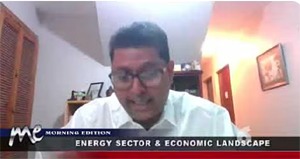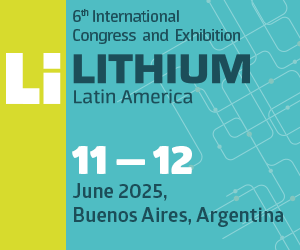U.S. sanctions force Western oil giants out of Venezuela—while Maduro consolidates control with help from global allies.

Ludmila Vinogradoff, ABC España
CARACAS
EnergiesNet.com 06 12 2025
The specter of mass layoffs is once again haunting Venezuela’s national oil industry. Following the May 28 deadline imposed by U.S. sanctions, multinational firms like Chevron, Repsol, ENI, and Maurel & Prom were forced to wind down operations—leaving the country increasingly exposed to oil smuggling and black-market trade.
Union leader Iván Freites says the first to suffer are thousands of workers suddenly laid off with the closure of foreign-led projects. Speaking from exile in Miami, the secretary of Professionals and Technicians (FUTPV) told ABC that roughly 10,000 workers from contracting, service, and consulting firms face unemployment. Their grim expressions, he says, are difficult to forget.
“This wave of dismissals will soon lead to a drop in oil and gas output—deepening poverty, hunger, and repression,” Freites warns.
Oil and gas account for 90% of Venezuela’s revenue. Once producing over 3 million barrels per day before the Chávez era, the state-run PDVSA now hovers near 1 million, according to OPEC. The decline began 25 years ago, when President Hugo Chávez infamously fired 20,000 PDVSA employees live on national TV in retaliation for a general strike tied to the brief coup of April 2002. “What was once Chávez’s whistle,” Freites adds bitterly, “has become Maduro’s birdsong, still chasing workers away under the banner of imperialist sanctions.”
This marks the second wave of U.S. sanctions targeting Venezuela’s oil sector. The first, in 2017, affected over 500 companies. The current sanctions—renewed under Donald Trump’s second term and enforced via the Treasury Department and OFAC—cited Nicolás Maduro’s failure to honor a democratic pact, release political prisoners, end human rights violations, and accept the electoral victory of opposition candidate Edmundo González Urrutia in July 2024.
Union leader Luis Hernández, head of the Oil Workers’ Front (FTP), challenged Freites’ layoff estimate, saying around 2,000 Chevron workers have been directly affected. Still, he agrees on the broader damage. “We’ve lost everything—health coverage, food assistance, vacations, and all social benefits,” Hernández says. “It’s heartbreaking.”
Hernández also laments the government’s failure to propose a viable plan to ease the sector’s social and economic shock. PDVSA officially employed 84,915 people as of late 2024, but Freites notes that 80% worked through subcontractors—a vulnerable segment now facing forced retirements and abrupt job losses.
With average oil-sector wages near $800 per month—half paid as benefits—the disparity with Venezuela’s broader public sector is stark. Most government salaries don’t exceed $200 a month. Pensions and the minimum wage remain below $2—less than the cost of a bottle of mineral water.
Instability
Elías Mata is an economist specializing in oil issues who regrets Chevron’s suspension, as “it was a support for the stability of the national currency. They sold dollars on the market, which slowed inflation and maintained a certain balance in the national economy.”
In conversation with ABC, Mata does not wish Venezuelans the suffering that lies ahead with the withdrawal of foreign contractors. “There will be a strong and harsh impact on real life, especially on the lower class. Once again, we will see hyperinflation and a mass exodus of compatriots seeking to make a life abroad.”
The regime cannot supply dollars to the domestic market because it “does not have them,” which is why prices are skyrocketing. “We already went through this in 2017, in the first stage of the sanctions. It’s déjà vu, but now it will be worse,” he warns.
Housewives are up in arms over the rise in prices in the market. According to Cedice Libertad, the annualized inflation rate in May shows variations of 238.33% in bolivars and 28.03% in dollars. Food led the price increases.
The impact on other sectors
Outside the oil sector, the impact is already being felt in employment expectations. According to Conindustria, the industry confederationn, large companies do not plan to increase their workforce, and medium-sized companies are planning some reductions.
At the same time, merchants in the interior of the country are reporting the closure of stores with low sales. In Caracas, restaurants and shops open one day and, after two months, are forced to close due to the crisis. Economists are predicting inflation of 280% this year.
“When a customer pays for a product, they are paying a large part of the taxes that the merchant should pay to the state,” says a businessman who wishes to remain anonymous. He also warns about the burden of municipal taxes, which drive up consumer prices.
Unlike many foreign companies that import finished products, local factories face multiple taxes for operating in several municipalities.
Based on his experience, this businessman estimates that tax revenue could reach $13 billion this year and that Venezuelan companies already allocate half of their profits to paying taxes.
According to the latest report by the Public Expenditure Observatory (OGP) of Cedice Libertad, inflation in Venezuela stood at 22.5% for bolivars and 7.22% for dollars in May. These figures represent a sharp acceleration compared to the 8.61% increase in the national currency and 1.54% increase in US currency recorded in April.
Don’t study the Venezuelan economy
The Chavista government is responding to sanctions with cynicism, vengeance, and brazenness. The first thing it did was to increase internal taxes on taxpayers and imprison those who use the black or parallel dollar website to curb inflation.
Vice President Delcy Rodríguez surprised everyone by saying that she does not recommend “anyone to study the Venezuelan economy, because according to economics books, they will not understand it,” washing her hands of the closure of the fields where Chevron operated.
But Nicolás Maduro went further: “We do not depend on any license” to maintain oil production. “We have managed to find solutions to break our dependence on the blockade following the sanctions imposed by imperialism,” he said.
Black market
The president stressed: “In the heat of the sanctions, we were forced to come up with solutions to break our dependence on the blockade.” He pointed out that “no country should depend on technology from the West that can then be used as a method of blackmail or threat. That is why we are forming alliances with the new powers.”
The Chávez regime has been flirting with Russia, China, and Iran to operate the fields that Chevron, Repsol, and France’s Maurel y Pron have closed, but it will not be easy for allied countries to replace the sanctioned multinationals as Maduro wants.
Engineer and oil expert Juan Szabo, exiled in Spain, tells ABC that the immediate and short-term effects indicate that oil production and sales will decline. “Without sanctions, some $14 billion would have been earned by the end of the year, but with the suspension of licenses, 40% of that estimate will be lost, between $7 billion and $8 billion.”
According to his calculations, the industry recorded a production of 860,000 barrels per day, of which a third, 280,000, correspond to Chevron.
Szabo argues that the sanctions will cause the Venezuelan oil black market to flourish once again. If the regime was previously opaque about production figures, it will now be even less transparent about sales and collections, and there will be greater corruption.
China does not buy sanctioned Venezuelan crude oil, and thinks twice if it has to change ships in a pirate-like manner. The regime sells oil at deep discounts on the high seas with oil tankers bound for Singapore and Malaysia, traveling with their transponders turned off, carrying contraband crude oil.
Blackouts
When Petróleos de Venezuela (PDVSA) sneezes, not only do Venezuelans catch a cold, but all its Caribbean and Latin American customers are infected. The power outages suffered by Venezuelan cities are immediately replicated in Cuba and Nicaragua due to the lack of fuel to power thermoelectric plants. Everything comes to a standstill without Venezuelan energy.
Original story: «¿Por qué se van Chevron y Repsol y se queda Maduro?» Los efectos de las sanciones de Trump en Venezuela
Liberal translation by Elio Ohep, Editor of EnergiesNet.com
abc.es 06 11 2025













